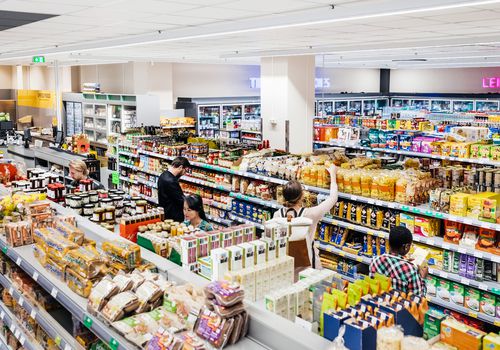
In India, the Vim bar for washing dishes has been reduced from 155 to 135 grams. In America, only 60 tissue papers are available in 65 packets of Kleenex company. In the UK, Nestle left a tin of 90 grams of 100 grams of Nescafe Azera Americano Coffee. Companies from Asia to Europe and America are doing the same tricks. Reason? During rising inflation, reduce your costs, increase profits, and most importantly, keep your customers deceived.
Experts are telling that this new trend, from chips and curd to toilet paper is being seen in the markets all over the world. By doing this, companies are avoiding increasing the price of the product even when the cost increases. Finance analyst company S&P Global claims that global consumer price growth in May stood at 7 percent, the same trend will continue till September.
According to consumer rights expert Egger Dworski, companies have been following the trend of reducing the weight of the products for 10 years without changing the price. He says that this trend has picked up since the end of last year. In India, Dabur India's corporate spokesperson Beas Anand says consumers in rural areas are very price-sensitive, and companies find it easier to increase prices in cities.
Next: Will the packets remain small?
According to Dwarsky, it is very rare for companies to shorten the packets of a product and then increase them. They take such steps to deal with inflation but do not want to change it later after seeing competition and profits.
Read...how-to-manipulate companies
In the US, a 340-sheet roll of Cottonelle Ultra Clean-Care Toilet Paper is reduced to 312 sheets
Folgers Coffee to 51 oz Cans of 43.5 oz
PepsiCo launches 'Party Size' packet of 15.5 oz instead of 18 oz packet of Fritos Scoops (corn chips)
Bottles of Gatorade held 28 oz instead of 32 oz
P&G Pantene Pro-V Conditioner 12 oz Instead of 10.4 oz
Snacks company Kalbi in Japan has reduced the weight and price of many products.
In Advantages: Companies... who else?
According to Hitendra Chaturvedi, a supply chain management professor at Arizona State University, if you subtract the cost from the market value of the product of many companies, you will find that profits increase rapidly. Take the example of PepsiCo, its business profit was 11 percent in 2021, but it has increased to 128 percent in the first quarter. It smells of profiteering.
Also Read: Rupee At Record Low: Rupee falls further against the dollar, reaching a record low of 77.81
In Dehradun, the capital of Uttarakhand, following the death of Angel Chakma, a student from Trip
This picture of Russian President Vladimir Putin and the then Prime Minister of Pakistan Imran Kh
Students raised voices against terror in PAK, protested leaving class
Students have raised their voices against terrorism in Pakistan. In the Khyber Pakhtunkhwa provin
It is said that there cannot be only one medicine for every merge, but after the last World Cup,
In a meeting with Water Minister Atishi and Urban Development Minister Saurabh Bhardwaj regarding
Kanpur Violence: Today there was a fierce stone pelting between two communities in Kanpur. Some p
Big news has come out in the firing case of Bollywood actor Salman Khan's residence. Mumbai Crime
Bharat Jodo Yatra: A man traveling barefoot has become a point of attraction in the Bharat Jodo Y
Delhi Firecrackers Ban: People waiting to burst crackers on Diwali in Delhi have got a shock. The
The patience of the workers trapped in the Silkyara tunnel for the last five days is now wearing